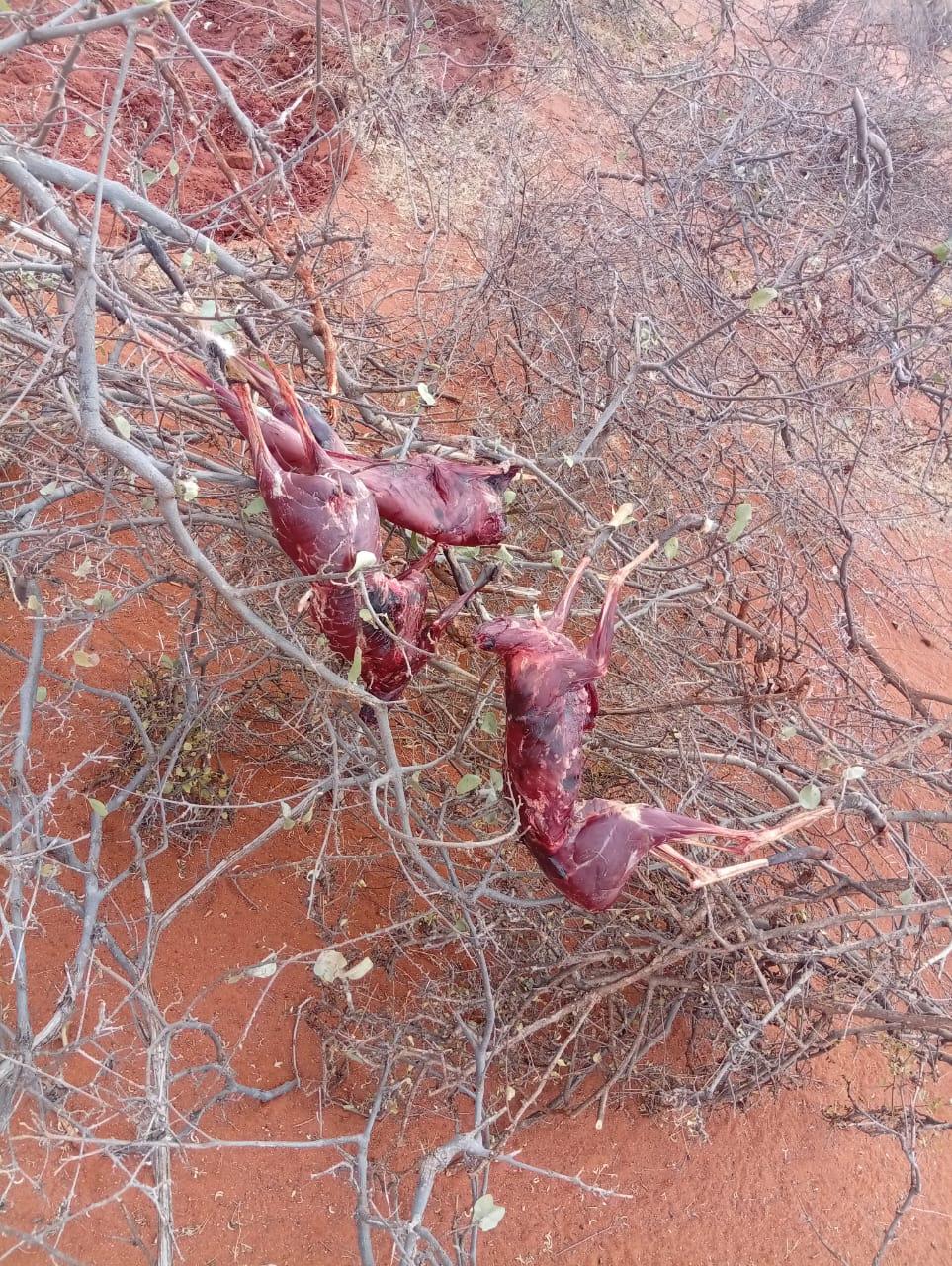
 The Dik dik carcass's meat drying on a tree.
The Dik dik carcass's meat drying on a tree.
Four suspects have been arrested in the Dasheg location, Wajir East sub-county, after they were found in possession of dried dik-dik carcasses, Kenya Wildlife Service (KWS) officials have confirmed.
Wajir KWS warden Jamaal Abdirashid said the arrests were made on Monday during a sting operation using unmarked KWS vehicles.
Officers traced the suspects to a construction site where they had reportedly been working and discovered the carcasses nearby.
According to Abdirashid, the suspects used torches to blind the small antelope species at night before attacking them with crude weapons, including clubs (rungus) and pangas.
The method involves temporarily disorienting the animal’s vision in the darkness, making it easy to approach and kill.
“This tactic gives poachers a window of opportunity to strike, especially on moonless nights,” Abdirashid explained.
The suspects are said to have confessed to the crime and will be arraigned at the Wajir Magistrate’s Court.
Abdirashid thanked members of the public for their continued cooperation in the fight against wildlife poaching.
He credited public awareness campaigns and intensified patrols with significantly reducing illegal hunting across the county.
“We are impressed to say almost 95 per cent of Wajir residents are supportive in protecting wildlife,” he noted. “This has gone a long way in helping us safeguard endangered species.”
The warden singled out residents of Wajir South, especially those living near refugee camps, for their commitment to conservation efforts and peaceful coexistence with wildlife.
He urged communities not to lower their guard and to continue reporting suspicious individuals involved in poaching or the illegal trade of game meat, particularly within and around refugee settlements.
The arrests come barely a month after residents of El Adow village in Wajir South raised alarm over increased poaching, accusing armed groups from neighbouring Somalia and individuals from Dagahaley, Ifo, and Hagardera refugee camps of being behind the illegal activities.
During a recent community sensitisation meeting, locals called on the government to consider arming local scouts or recruiting police reservists to help protect wildlife in the region
As Wajir remains a critical habitat for endangered species like the dik-dik, the arrests underscore both the ongoing threats to wildlife and the vital role of community vigilance in combating poaching











